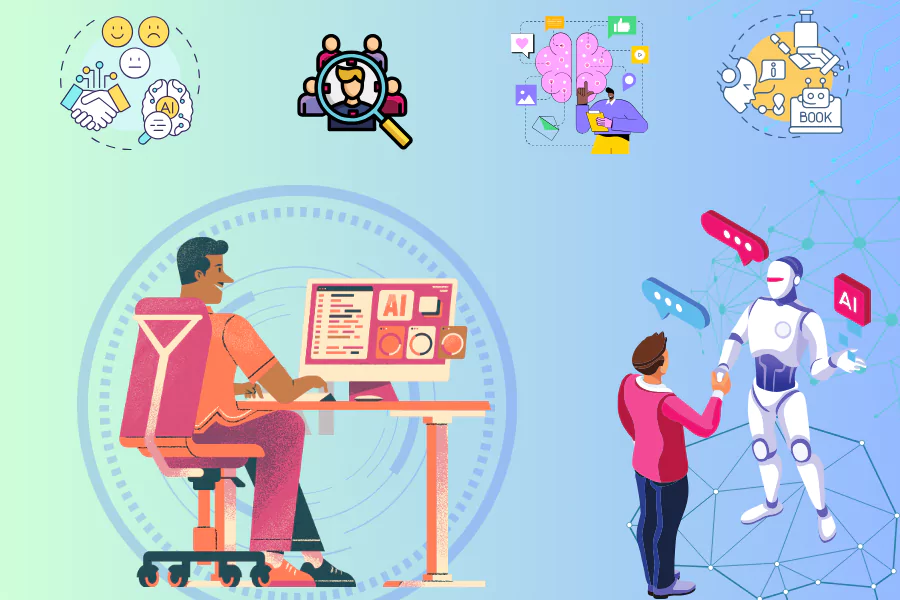How Do AI-Driven Personalization Engines Enhance Content Relevance & Audience Engagement?
In an era where digital content is ubiquitous, capturing and maintaining audience attention is more challenging than ever. Traditional one-size-fits-all approaches to content delivery often fall short, leading to disengagement and missed opportunities. Enter AI-driven personalization engines, which have revolutionised the way brands connect with their audience by tailoring content to individual preferences and behaviours. This blog explores how these advanced technologies enhance content relevance and audience engagement.

Understanding AI-Driven Personalization Engines
AI-driven personalization engines leverage artificial intelligence and machine learning algorithms to analyse vast amounts of data about users. This data includes browsing history, past interactions, demographic information, and even real-time behaviour. By processing and interpreting this data, these engines can predict user preferences and deliver highly personalised content experiences. The result is a more engaging and relevant interaction for each user.
Enhancing Content Relevance
Data-Driven Insights
AI personalization engines collect and analyse user data to uncover insights about individual preferences. This includes understanding what types of content a user engages with most, the time they spend on different content pieces, and their interaction patterns. These insights enable brands to create content that aligns closely with user interests.
Dynamic Content Delivery
Unlike static content strategies, AI-driven personalization engines can dynamically adjust the content displayed to users in real-time. This means that as users navigate a website or app, the content adapts based on their behaviour and preferences. For instance, an e-commerce site might show different products to different users based on their browsing history and purchase behaviour.
Segmentation and Targeting
AI engines segment audiences into highly specific groups based on detailed criteria. This segmentation allows for more precise targeting of content. For example, a streaming service might use AI to recommend different movies to different user segments based on their viewing history and preferences, thereby increasing the likelihood of engagement.
Contextual Relevance
AI can also take into account contextual factors such as time of day, location, and current events to enhance content relevance. For instance, a news website can use AI to prioritise local news stories for users based on their geographical location.
Boosting Audience Engagement
Personalised Recommendations
One of the most effective ways AI enhances engagement is through personalised content recommendations. Platforms like Netflix, Amazon, and Spotify use AI to recommend movies, products, and music that users are likely to enjoy. These personalised recommendations keep users engaged longer and encourage repeat visits.
Adaptive Learning
AI-driven personalization engines continuously learn and adapt to user behaviour. This means that the more a user interacts with the platform, the more accurate and personalised the content delivery becomes. This adaptive learning fosters a deeper connection between the user and the brand, leading to increased loyalty and engagement.
Interactive and Engaging Experiences
AI can create interactive content experiences that respond to user inputs. For example, chatbots powered by AI can provide personalised responses and recommendations, creating a more engaging and interactive experience for users.
Enhanced User Experience
By delivering content that is highly relevant and personalised, AI enhances the overall user experience. Users are more likely to stay on a platform that feels tailored to their needs and interests, reducing bounce rates and increasing time spent on site.
Case Studies
Several brands have successfully implemented AI-driven personalization engines to enhance content relevance and engagement:
Netflix
Netflix’s recommendation system is a prime example of AI-driven personalization. By analysing viewing history and preferences, Netflix suggests content that users are likely to enjoy, keeping them engaged and coming back for more.
Spotify
Spotify uses AI to create personalised playlists such as Discover Weekly and Daily Mix, which are tailored to individual listening habits. This personalization has been key to Spotify’s user engagement strategy.
Amazon
Amazon’s recommendation engine suggests products based on user browsing and purchase history. This personalised approach has significantly contributed to Amazon’s success by enhancing the shopping experience and increasing sales.
Active Events
3 Essential Projects to Elevate Your 5c of Content Marketing Portfolio
Date: April 29, 2025 | 7:00 PM(IST)
7:00 PM(IST) - 8:10 PM(IST)
2432 people have registered
Transition from Non-Data Science to Data Science Roles
Date: May 1, 2025 | 7:00 PM (IST)
7:00 PM (IST) - 8:10 PM (IST)
2753 people have registered
Bootcamps
Digital Marketing Bootcamp
- Duration:4 Months
- Start Date:May 10, 2025
Data Science Bootcamp
- Duration:4 Months
- Start Date:May 10, 2025
